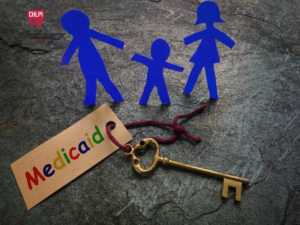By: Emily Broad Leib and Ona Balkus of Harvard Food Law and Policy Clinic, and Kelly Nuckolls, Student at Drake University Law School
The food waste reduction benchmark has been set. The United States Department of Agriculture (USDA) and Environmental Protection Agency (EPA) announced on September 16th the United States’ first food waste reduction goal: a 50 percent reduction of U.S. food waste within the next 15 years. Through this partnership between the private sector, charities, and the federal government, a number of voluntary initiatives will divert excess food from the nation’s landfills. The USDA and EPA propose chipping away at food waste through several key strategies including: (1) educating consumers, (2) increasing food donation, and (3) encouraging more responsible corporate practices.
First, the USDA and EPA plan to expand an ambitious new consumer education campaign about food waste. Consumer confusion results in billions of pounds of food waste each year. For example, individuals frequently toss out food past its sell-by date, even though the date is not a safety indicator and such food is still safe to eat. Consumers also frequently forget about perishable foods they purchased, resulting in wilting, souring, and the eventual tossing out of food that was once perfectly edible. This new consumer education campaign hopes to address these issues through the launch of a new platform on ChooseMyPlate.gov, the government’s online resource for nutrition information, which will provide consumers with information on how to budget and plan for meals, properly store food, and interpret food date labels. The USDA will continue to promote their recently released FoodKeeper App, which helps consumers improve how they purchase, store and prepare food in order to reduce waste.
Second, the food waste reduction goal will prioritize the redirection of edible and safe food toward hunger-relief organizations. Post-harvest food loss in the U.S. totals approximately 133 billion pounds each year, while at the same time, over 49 million Americans are food insecure. The USDA and EPA will build upon current programs to recover and reduce this waste, including the U.S. Food Waste Challenge, which established a coalition of schools, businesses and organizations to share best practices on how to donate excess food. USDA Secretary Vilsack highlighted that Congress can help achieve this national goal –legislation pending in Congress would expand a tax incentive for farmers, retailers, and other businesses that could cover the costs associated with donating excess food to those in need.
Third, EPA and USDA plan to assist businesses and farmers with reducing their food waste –through donation, recycling, or improved product management. The development of new technologies, such as packaging that will reduce food spoilage, new and improved storage facilities, composting facilities, and other innovative products, is among the EPA and USDA’s priorities. The announcement also encourages increasing food donation across the food retail chain. USDA has even provided guidance to manufacturers on how to donate misbranded or cosmetically imperfect, but still wholesome foods.
The Food Law and Policy Clinic (FLPC) enthusiastically supports the USDA and EPA’s announcement. FLPC staff and students believe that food waste is one of the most pressing environmental, social and moral challenges of our food system. FLPC’s past and current work includes several policy reform initiatives that we believe can contribute to achieving the nation’s first food waste reduction goal.
 Beginning with the release of the report “The Dating Game How Confusing Food Date Labels Lead to Food Waste in America” in 2013, FLPC has been on the forefront of the discussion around reducing food waste. The Dating Game report (co-published with the Natural Resources Defense Council) raised awareness about consumer confusion surrounding the meaning of date labels – proposing policy recommendations to ensure that date labels are uniform, coherent and easily understood, thereby reducing food waste and ensuring that good food is utilized.
Beginning with the release of the report “The Dating Game How Confusing Food Date Labels Lead to Food Waste in America” in 2013, FLPC has been on the forefront of the discussion around reducing food waste. The Dating Game report (co-published with the Natural Resources Defense Council) raised awareness about consumer confusion surrounding the meaning of date labels – proposing policy recommendations to ensure that date labels are uniform, coherent and easily understood, thereby reducing food waste and ensuring that good food is utilized.
Today, the cultural norm is to throw out food that is past its date. There is a common misconception among consumers that food items have an “expiration” date, and we can see why consumers are confused. With no federal law in place to create a clear and uniform policy for food date labels, consumers will continue to waste food that is perfectly safe and edible. We are excited to see what steps USDA and EPA will take in order to meet the food waste reduction goal, and believe a strong first step would be the creation of an improved date label policy that will exhibit a clear and understandable meaning for consumers.
FLPC also works to increase food donations from farms and food businesses to food banks and other food recovery organizations. FLPC is assisting policymakers and businesses to understand, comply with, and strengthen the laws that impact food donation. For example, FLPC provided businesses in Massachusetts with legal guidance documents to assist with food donation efforts, including information on state laws regarding date labels, tax incentives for food donations, and liability protections for food donors. On both the federal and state level, FLPC is also working to propose policy reforms that would expand the tax incentives to better compensate businesses for the costs associated with food donation, and clarify the liability protections that exist for food donors.
The announcement of the food waste reduction goal offers an opportunity to step back and comprehensively review our everyday practices as well as our policies in order to make sure we prioritize the best use of our food as a resource. We applaud EPA and USDA’s commitment to food waste reduction, and look forward to working together toward achieving this common goal of reducing the waste of healthy, wholesome food throughout the U.S.
Learn more about the USDA and EPA’s food waste reduction goals.



